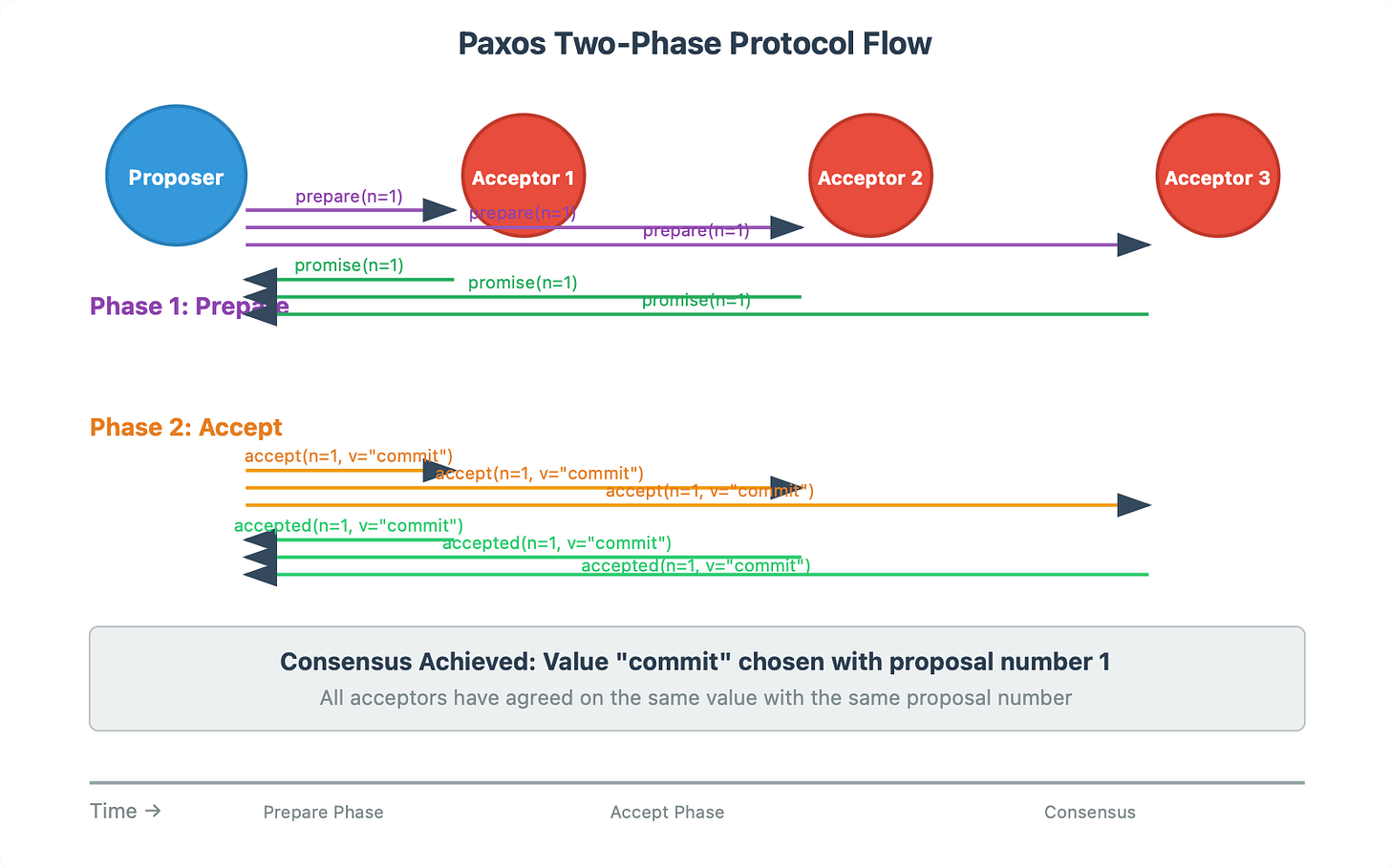Distributed Consensus: Paxos Simplified
Issue #56: System Design Interview Roadmap - A Premium Newsletter for Distributed Systems Mastery
The Silent Guardian of Your Critical Data
Picture this: Your payment processing system just received 50,000 simultaneous transaction requests across three data centers during Black Friday. Each transaction must be processed exactly once, with perfect consistency across all nodes, even if servers crash mid-process. Behind the scenes, a consensus algorithm quietly orchestrates this digital symphony, ensuring your customers' money moves safely and your business stays trusted.
Welcome to the world of Paxos—the mathematical foundation that makes distributed consensus possible at planetary scale.
Why Paxos Matters More Than You Think
Most engineers encounter Paxos as an abstract academic exercise, but here's what the textbooks don't tell you: Paxos isn't just about consensus—it's about making impossible guarantees in an unreliable world.
When Google's Spanner database promises external consistency across continents, when Ethereum validators agree on the next block, when your microservices coordinate complex workflows, Paxos-based algorithms are working beneath the surface.
The deeper insight? Paxos solves the fundamental tension between safety (never making conflicting decisions) and liveness (eventually making progress) in distributed systems. This tension appears everywhere: from database transactions to service mesh coordination, from leader election to configuration management.
The Paxos Protocol: Beyond the Textbook
Let's visualize how Paxos actually works in practice, starting with the core message flow:


